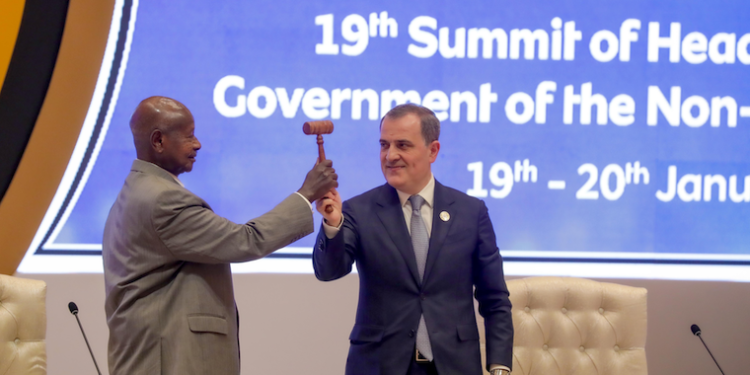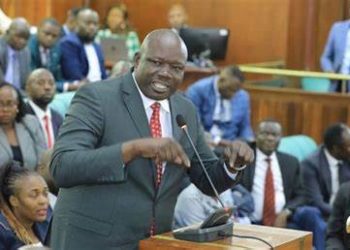By THE OBSERVER UG
President Museveni assumed chairmanship of the Group of 77 (G-77) plus China
President Yoweri Museveni assumed the chairmanship of the Group of 77 (G-77) plus China on Sunday, January 21, succeeding Salvador Valdés Mesa, vice president of the Republic of Cuba.
This transition took place during the Third South Summit of G77 countries plus China at Speke Resort Munyonyo, marking a significant moment for Uganda on the global stage. This leadership role comes just two days after Museveni began his three-year term as the chair of the Non-Aligned Movement (NAM).
In his address, President Museveni outlined Uganda’s objectives for its G77 chairmanship, focusing on accelerating the implementation of the 2030 Agenda for poverty eradication, intensifying efforts to combat climate change and biodiversity loss, and enhancing international tax cooperation and digital collaboration.
He emphasized the importance of unity within the G77 to defend the collective economic interests of its member states at the United Nations, urging adherence to the group’s foundational principles.
Museveni highlighted the challenges posed by the current international economic order and the rising trend of unilateralism, which threatens multilateralism. He stressed the need for unity in demanding global support for developing countries to address issues like poverty, hunger, the digital divide, and climate change.
Representing Chinese President Xi Jinping, Vice Premier Liu Guozhong commented on the changing international landscape and the role of South-South cooperation in promoting human societal progress. He discussed the strengthening of trade and investment liberalization and the significance of bilateral, regional, and multilateral cooperation in achieving economic and social development.
The G77’s role in the global economy was underscored, with developing countries now accounting for significant portions of world trade and high-tech exports. Liu emphasized the narrowing gap with developed countries and the substantial contribution of the South to global growth.
He also noted China’s support for a UN special envoy for poverty eradication to bolster global poverty reduction efforts. UN Secretary-General António Guterres expressed concerns about slipping investments in sustainable development and climate action. He referenced the devastating impacts of wars around the world, including disruptions to global supply chains and widespread destruction.
Guterres called for reform of financial institutions and frameworks established post-World War II to better reflect contemporary global realities and respond to the needs of developing countries.
Highlighting his proposal for an SDG stimulus of $500 billion a year, Guterres focused on providing affordable, long-term finance for sustainable development and climate action in developing countries.
He urged G77 member states to unite against the climate crisis and hold developed countries accountable for climate justice and equitable transition towards renewable energy, in line with the principle of common but differentiated responsibilities.







Discussion about this post